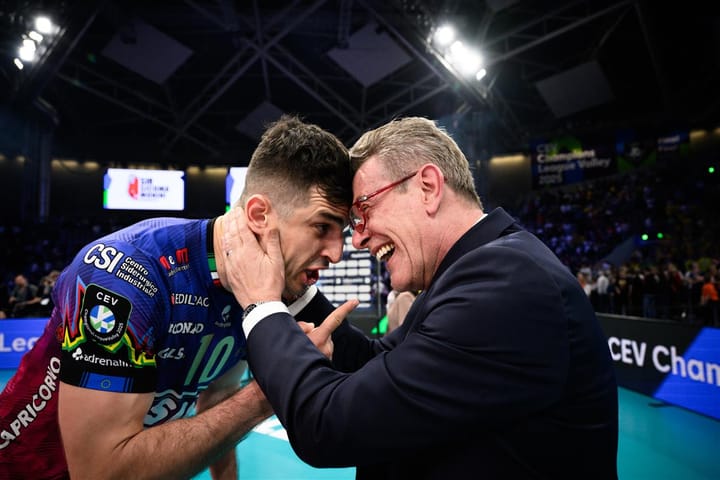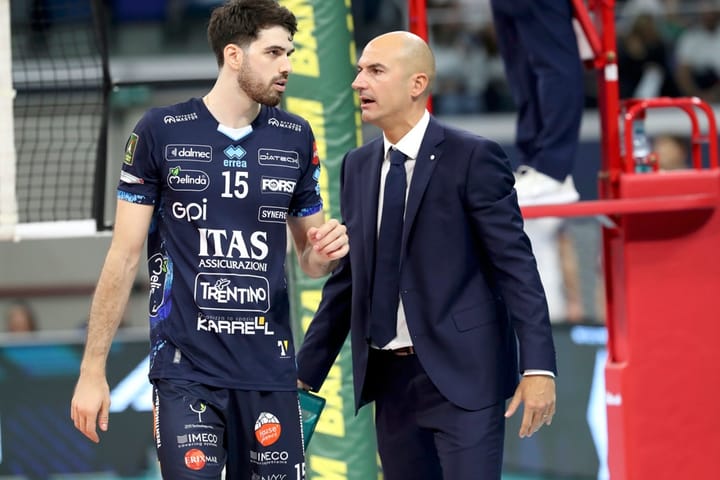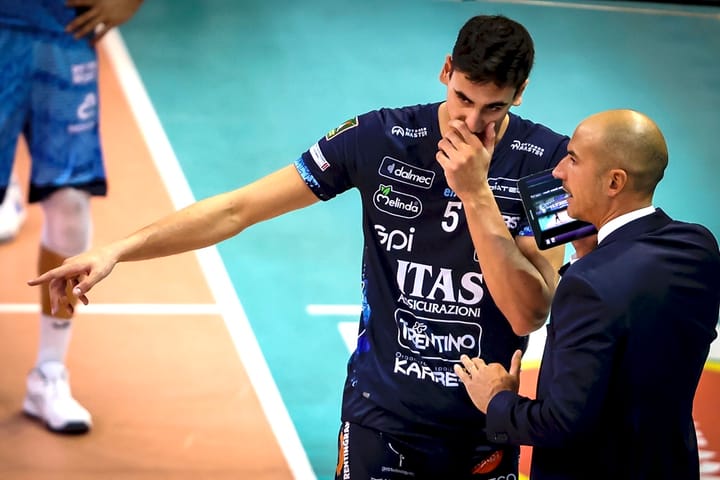78. Francesco Petrella: Between Stimulus and Response, The Space to Lead
Francesco Petrella's passion for volleyball, along with an expertise in team culture and leadership, and his experiences in the Italian Superlega, make him the perfect coach to have an interview with.
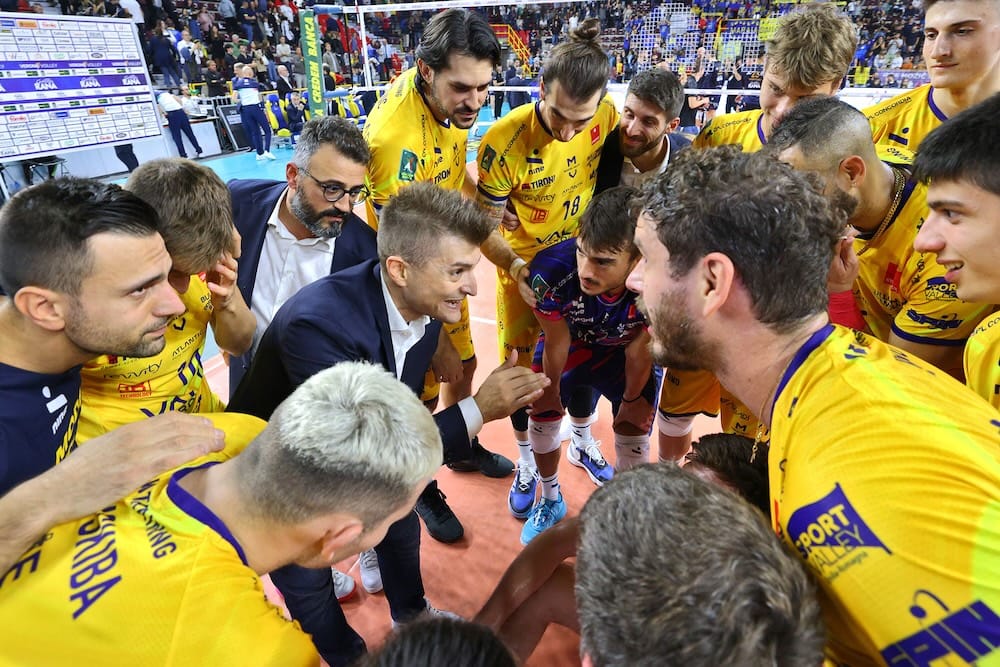
Quickly advancing through youth coaching roles, coach Petrella became the assistant coach of Modena's Superlega team in 2016.
In 2017 coach Petrella joined sides with Italian master coach Angelo Lorenzetti at Trentino Volley.
This was the start of a 6 year-long mentor-mentee relationship with one of the most respected coaches in the game. Together they won the Italian Championship, the World Club Championships, the CEV Cup, and more...
In the 2023-2024 season, Francesco became the head coach of his hometown team of Modena.
In this Masterclass coach Petrella talks about:
- What living the pro coach life really means
- The crucial elements that go into becoming a winning team
- How standards, not rules, are necessary for team cohesion
- How standards are monitored and upheld
- Which roles and positions are needed in today's game
- The focus on truth and clarity of reality inside a team
- Rule changes that would benefit our sport
- and so much more
We're grateful for Coach Petrella's effort to share his expertise in English, not his first language, it makes us able to share his expert experiences with even more volleyball lovers (and learners)
You can choose to watch the video clips or read our edited transcripts, which maintain the conversational style of Coach Petrella's message.
Enjoy this Masterclass.
Francesco, which advice would you give yourself as a starting coach? An advice that is so clear and logic for you now, but that you had to develop over the years.
One thing I always try to remember, especially in such a competitive environment, is the reason behind choosing to be a coach. It's crucial to remember that it’s more about pursuing your passion than focusing on the immediate outcomes of your career.
Another important aspect is not to rush decisions. Coaching is a long process, and each season, you must reaffirm your commitment to this profession since it’s not guaranteed.
Unlike other professions, where you might remain in the same role for decades, professional coaching requires more adaptation. You might coach professionally for a few years, then find yourself without a team, and then start over with a new team.
It's essential to view your coaching career as a marathon, not a sprint.
In a marathon, your pace at any given moment is important, but not as crucial as your overall endurance and strategy.
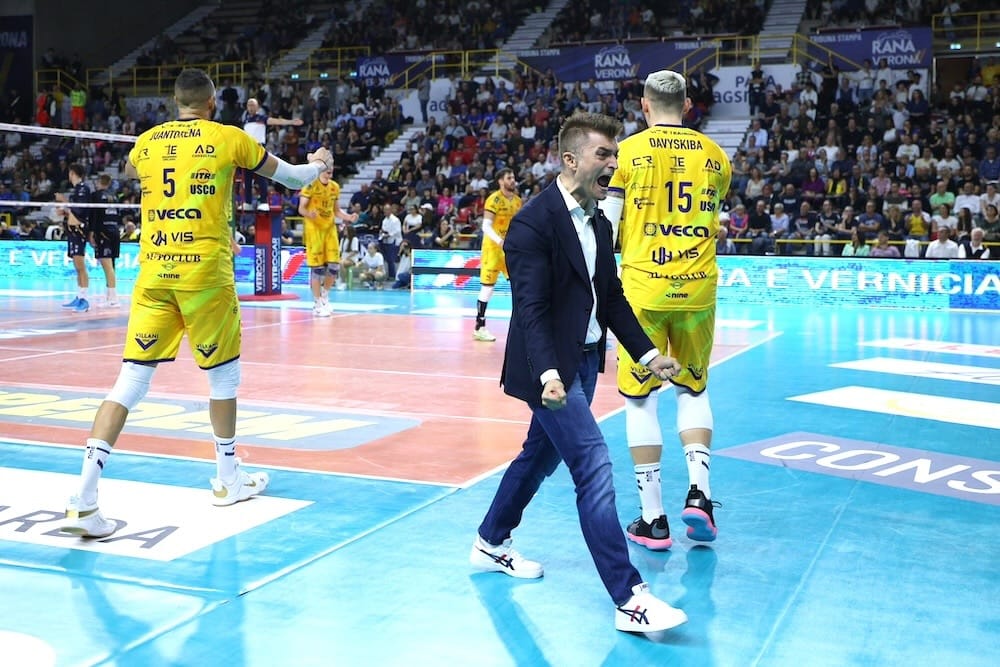
Matias: The differences between coaching professional teams in Europe and the collegiate system in the U.S., it's clear that the European system poses unique challenges. The huge emphasis on results-driven coaching, which is different from other environments where you might have more stability and control.
The only real decision you have control over at the end of each season is whether you want to continue being a professional coach the following year.
I recall reading a chapter in Carlo Ancelotti’s book, "Leader Calmo," where he discusses his experiences getting fired and how he navigated his career trajectory differently as he matured.
Ancelotti mentions that earlier in his career, he took firings personally, but with more experience and several trophies later, he learned to detach and not to dwell too deeply on the ups and downs, recognizing them as part of the game.
This approach helps conserve energy—energy better spent on daily coaching duties rather than fretting over every high and low.
What are bad recommendations you hear about coaching or training volleyball?
For me, it's not about one specific aspect of the game. I believe you can achieve success in many different ways, which is why the game is always evolving. For example, in professional volleyball, the importance of serving has increased significantly over the last decade.
This change has forced adjustments in reception tactics to counteract the evolution of service strategies.
This is why I don't believe there's only one way to play volleyball or one way to win games. Certain aspects are undoubtedly crucial, but there is no single, definitive method.
As coaches, sometimes we assert that our approach is the only way, which isn't correct. We tend to do this because players often need to feel that sense of decisive leadership, and it’s a way for them to feel secure behind the coach’s decisions.
There’s an Italian saying, "pensiamo alla prossima," which means "just think about the next ball." This concept can be frustrating because it suggests always moving on without considering the importance of the present moment. The reality is that not every situation can be overlooked; some moments require immediate and thoughtful decisions based on the current context, not just what’s next.
In coaching, instilling the importance of focusing intensely on the present can increase pressure, not only on the players but also on coaches and clubs. However, I am convinced that teams which maintain this level of intensity consistently are the ones that achieve success.
So, you have to decide what you aim for. If you aspire to be a winning team, you must embrace and sustain this intensity.
If comfort is your preference, that's also a choice, but it won't align with achieving significant success.
What is the most important key factor in creating culture to you?
I believe that the most essential word in team sports, particularly in volleyball, is "responsibility." In Italian, "responsabilità" - abilita a rispondere - means the ability to respond effectively to a situation.
This is crucial because it places the emphasis on the need to take charge at pivotal moments. In individual sports, it's simpler; you're by yourself and can only blame external factors, such as the referee in tennis.
But in team sports, assuming responsibility is optional, you can hide yourself in a team setting. Yet, in my view, a true champion always chooses to shoulder this responsibility.
When true champions face defeat, their reaction isn't to dwell on the loss; instead, they're prepared to immediately try again, much like inserting another coin into a slot machine after a loss.
This resilience sets apart the real champions from merely good or average players who might shy away from taking responsibility due to the emotional weight it entails.
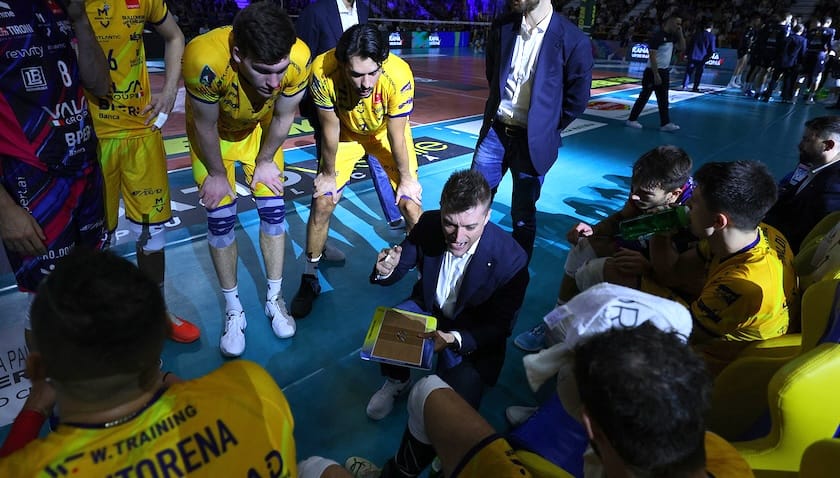
If players continuously move from one moment to the next (which is what you instill if you say 'next ball') without processing their emotions—whether it's anger from a personal mistake or frustration due to a teammate's error—these emotions accumulate.
